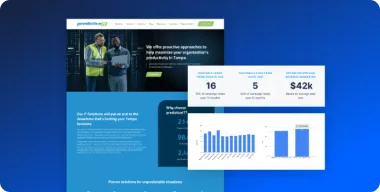The number of small businesses adopting social media is growing by the day, many small business owners are well aware that a presence on the various social media sites can help their business not only grow, but solidify its brand. As a result of the mass-migration, so to speak, to social networks, businesses have become a part of a social fabric that goes beyond 9-5 business hours. Being a part of social networks exposes businesses to a massive amount of social data that can be leveraged in a nearly infinite number of ways. This exposure has given rise to the next era in social media, the social business.
Social business can be defined as leveraging your already existing social media platform in a way that unlocks the potential of all within the networks. Traditionally, small businesses use social media to interact with external parties, namely potential and existing customers. Social businesses take this a step further and use social media to interact with all parties involved, including employees, customers and suppliers.
They don’t just stop with interaction, they also implement sophisticated analytics which when combined with social media, transforms their business processes. This transformation allows them to build stronger relationships with all parties involved, while making better informed and decisions.
Social business in action
A social business typically has three characteristics.
- Social media at the core. They have adopted social media, and actually use it as a more than a communication tool. They have interesting content, interaction with not just customers but all parties and strive to add more value to the overall brand and products.
- Broken barriers. What do we mean by this? Traditionally, companies worked by developing ideas or products then pushed them to the market. A social business works the other way around, by interacting with parties through social media to develop a product or service based on trends. Beyond that, parties are encouraged to provide and drive change. Basically: if people are engaged with a company and product, they’re more likely to buy from that company.
- Nimble. Through the use of information and analytics, a business can make quick decisions, while identifying emerging trends and adapting to changing environments.
This jump from social media to social business can be a daunting one for some businesses, here are seven tips on how to improve your strategy, and make the jump.
- Know your customers/suppliers/employees. An efficient social business platform puts people, not the company first. To do this, you need to know all you can about those involved. While it can be hard to gather information, we find that the easiest way to gather information is to simply ask parties for it. Ask them what networks they use, what they want from you, how they want it and why. Your goal here is to figure out where you fit in, what needs to change and most importantly: what people want.
- Create a social business budget. While many social media websites are free to join, it doesn’t mean the service is free. A social business is constantly interacting with users and developing content. This is a full time job, one which you won’t be able to successfully run while also paying attention to your business. You’re going to need to establish a budget, both time and cost and try to stick to it. Before you launch the platform, you should carefully plan your priorities and activities.
- Ask yourself Why? Why, these three letters when asked as a question can go a long way in helping keep both your business and social business platform in check. You should ask yourself, “Why did I start this in the first place?” Maybe it was to reach more customers, build a sustainable brand or simply connect with other users. Whatever the reason, you should use and embrace this reason.
- Embrace your inner Boy/Girl Scout. A scout is always prepared, and your social business plan should be as well. You should set goals, establish which networks you’ll utilize, whom you will work with, who will be a part of the team and ultimately what you want to offer.
- Shoot from the heart, not the hip. While shooting from the hip will make you quick, you’ll often miss. What this translates to for social business is if you simply react without thinking, or do things without thinking you could completely mess up your reputation. Rather, you should take a few time to think how you truly think feel about things and let your personality show. Be sure that if you make a mistake or have a triumph, you acknowledge it, let people know your company is human.
- Be ready for a chase. Whether you’re the market leader or lag behind in your social media, when you implement a social business strategy, you will be in for a chase. Your competitors will eventually realize, if they haven’t already, the benefits of social business and will be chasing you. If you aren’t proactive, you will be passed and all benefits could potentially be erased. On the other end of the coin, if a competitor has an already established platform, you will be chasing them.
- Get help. Social business is no small undertaking, and very few small businesses will be able to effectively launch and maintain a social business platform without help. Companies like Pronto can help you with this task, and by working with us, you’ll be better able to recognize the benefits of social business.
While it may seem like social business is, at this time, the domain of enterprises, its small businesses that will drive the change and ultimately benefit the most. If you’re interested in learning more about how Pronto can help you establish and run your platform please contact us.




